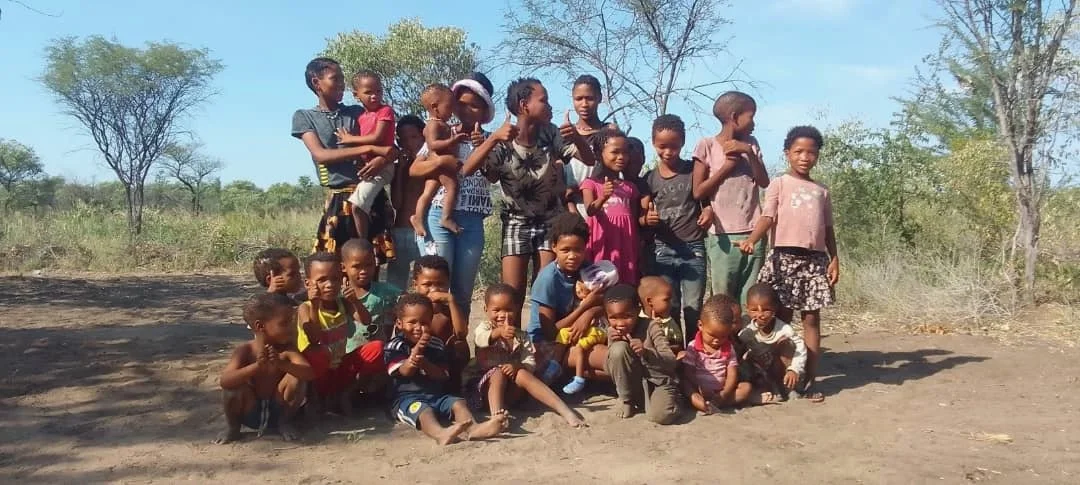Why teaching traditional skills still matters in a modern world
Werner, who grew up in Namibia, explains why teaching ancestral skills to the next generation is so vital, even with the advent of modern schools…
by Werner Pfeifer
Having grown up in Namibia, I have good contacts with the Ju|’hoansi bushmen (the San) in the Namibian Kalahari. I have been supporting them for over 25 years with the Living Museums projects, bringing visitors to them so that we can learn from them. Direct tourism is a brilliant way to support indigenous people who otherwise struggle to survive in a modern market economy. Topics such as sustainable use of resources, respectful treatment of people and healthy child-rearing are some of the social features, but also the incredible skills of tracking, knowledge of native plants and wildlife, and much more make a visit to these cheerful people well worth the long journey.
Now, two of the elders have decided to each establish a school for their own youth. They want to pass on the traditional skills and knowledge of their ancient culture to their own people. The current situation is that children are forced into ‘modern’ schools and confronted with a hierarchical system that is incomprehensible to them. For one of the heritage villages, Djamta!’ae, the modern primary school is 10 km away - at least a 2 hour walk each way, even for a very fit child. The only modern secondary school is in Tsumkwe, some 35 km away. So children have to board away from home which creates trauma, poor bonding and exposes them to the urban influences that the elders have returned to traditional villages to avoid. This leads to many children dropping out of school early and growing up with neither a modern nor a traditional education. Without any education they drift into becoming beggars or cheap labourers as adults.
These two elders want to break new ground by passing on traditional knowledge and skills to young people in their villages, combining them with useful modern elements and showing them ways to master a better life in their difficult situation. Many traditional elements are being tried out and taught - such as tracking, traditional hunting, recognising and gathering bush foods to obtain healthy nutrition, traditional medicine and social skills. With the addition of modern permaculture projects - such as forest gardens (more like bush gardens) and a blended approach, e.g. termite-proof huts. Their aim is to enable young families to stay in the villages, eat healthier food and live in a healthy community.
Our foundation supports these two elders and their villages. We want to secure a teacher's salary for them so that they can also take care of their young people. At the moment, they spend their time trying to earn money to feed their families, mostly by selling jewellery or looking after tourists.
If each of us, and our friends and acquaintances donate just a small amount each month, such as £10 (the same as a cup of coffee with cake), and if a lot of people did this, we can pay these two elders a teacher’s salary. This gives them the time to take care of their traditional schools and, together with our other sustainable projects, in the long term it will enable many Ju|’hoansi people to escape poverty and live a dignified life.
In return, all supporters automatically become friends of these villages and, if you visit them, you can stay there free-of-charge and among friends. Do have a good read of our website, look at our projects and pass this information on to others. Please support the indigenous people of southern Africa with a donation and your visit.
The children of Djamta!'ae
